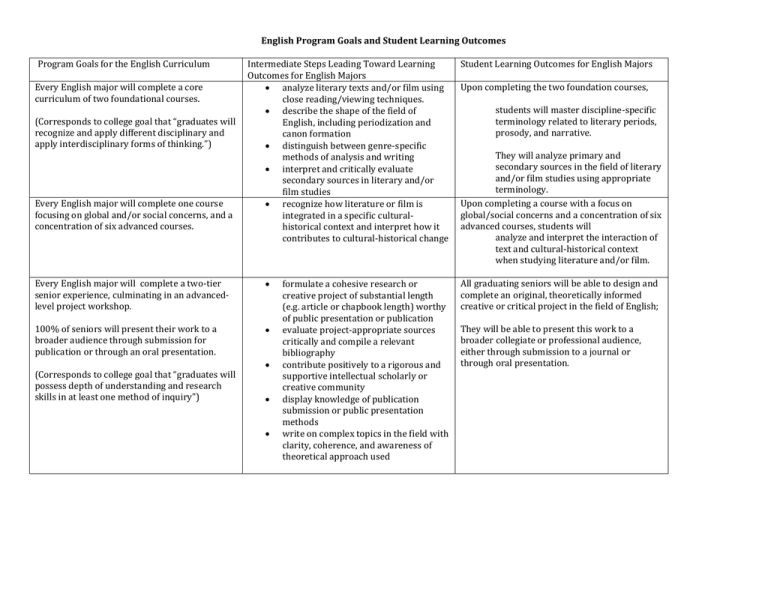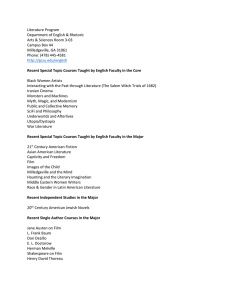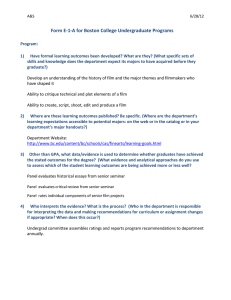English Program Goals and Student Learning Outcomes
advertisement

English Program Goals and Student Learning Outcomes Program Goals for the English Curriculum Every English major will complete a core curriculum of two foundational courses. (Corresponds to college goal that “graduates will recognize and apply different disciplinary and apply interdisciplinary forms of thinking.”) Every English major will complete one course focusing on global and/or social concerns, and a concentration of six advanced courses. Intermediate Steps Leading Toward Learning Outcomes for English Majors analyze literary texts and/or film using close reading/viewing techniques. describe the shape of the field of English, including periodization and canon formation distinguish between genre-specific methods of analysis and writing interpret and critically evaluate secondary sources in literary and/or film studies recognize how literature or film is integrated in a specific culturalhistorical context and interpret how it contributes to cultural-historical change Every English major will complete a two-tier senior experience, culminating in an advancedlevel project workshop. 100% of seniors will present their work to a broader audience through submission for publication or through an oral presentation. (Corresponds to college goal that “graduates will possess depth of understanding and research skills in at least one method of inquiry”) formulate a cohesive research or creative project of substantial length (e.g. article or chapbook length) worthy of public presentation or publication evaluate project-appropriate sources critically and compile a relevant bibliography contribute positively to a rigorous and supportive intellectual scholarly or creative community display knowledge of publication submission or public presentation methods write on complex topics in the field with clarity, coherence, and awareness of theoretical approach used Student Learning Outcomes for English Majors Upon completing the two foundation courses, students will master discipline-specific terminology related to literary periods, prosody, and narrative. They will analyze primary and secondary sources in the field of literary and/or film studies using appropriate terminology. Upon completing a course with a focus on global/social concerns and a concentration of six advanced courses, students will analyze and interpret the interaction of text and cultural-historical context when studying literature and/or film. All graduating seniors will be able to design and complete an original, theoretically informed creative or critical project in the field of English; They will be able to present this work to a broader collegiate or professional audience, either through submission to a journal or through oral presentation.



